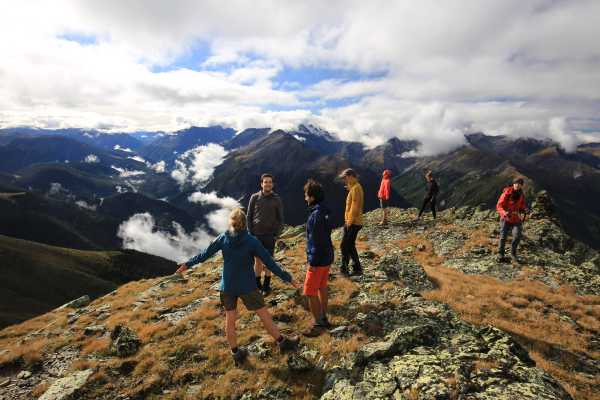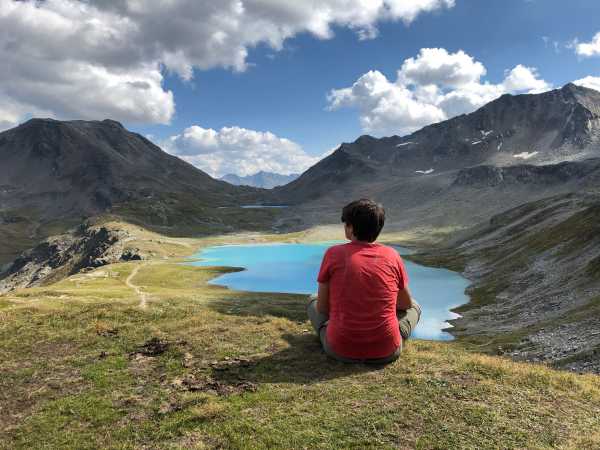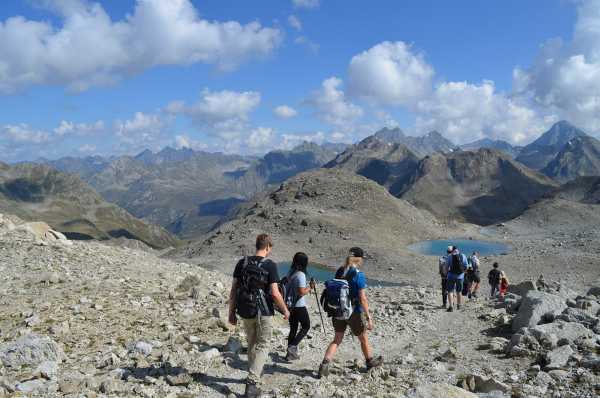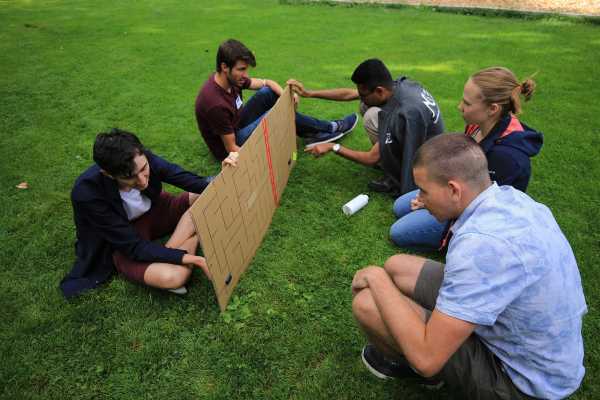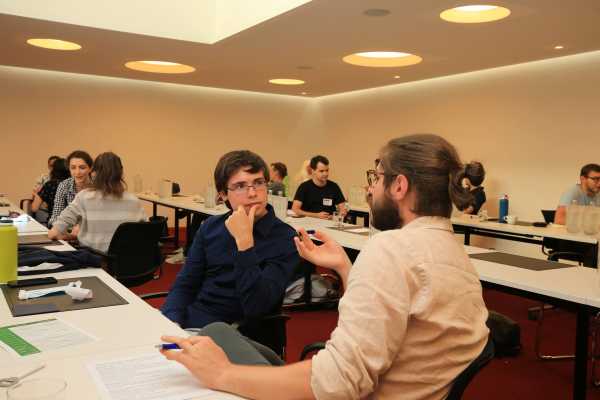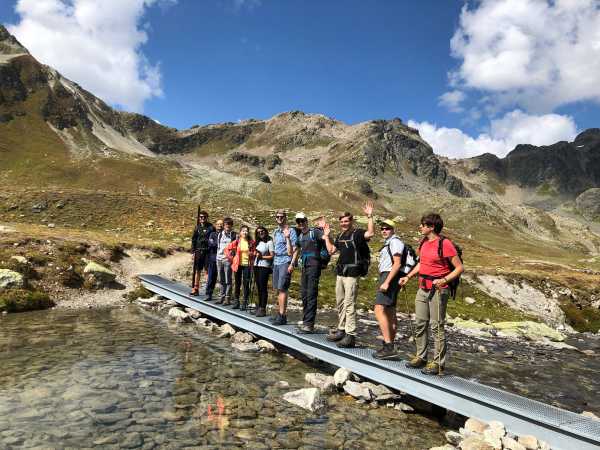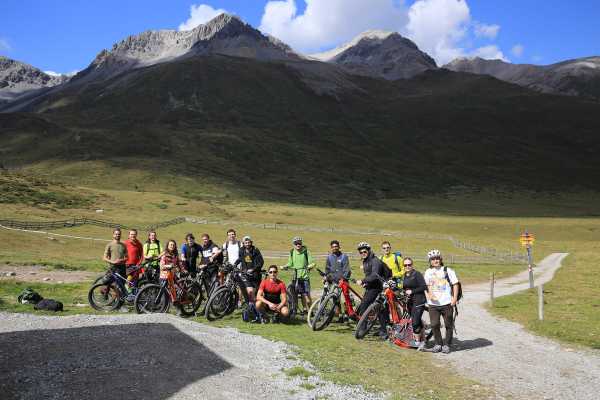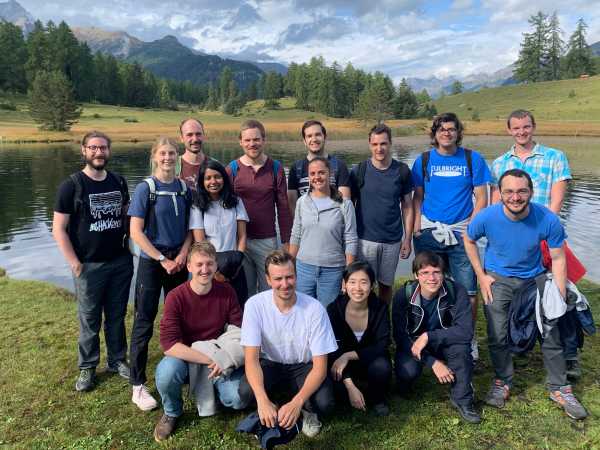VMI Summer Retreat 2021: science at leisure
For a week in September, scientific staff at the Department of Computer Science met in the picturesque mountain town of Scuol, Switzerland for a double-edition of the annual VMI Summer Retreat.
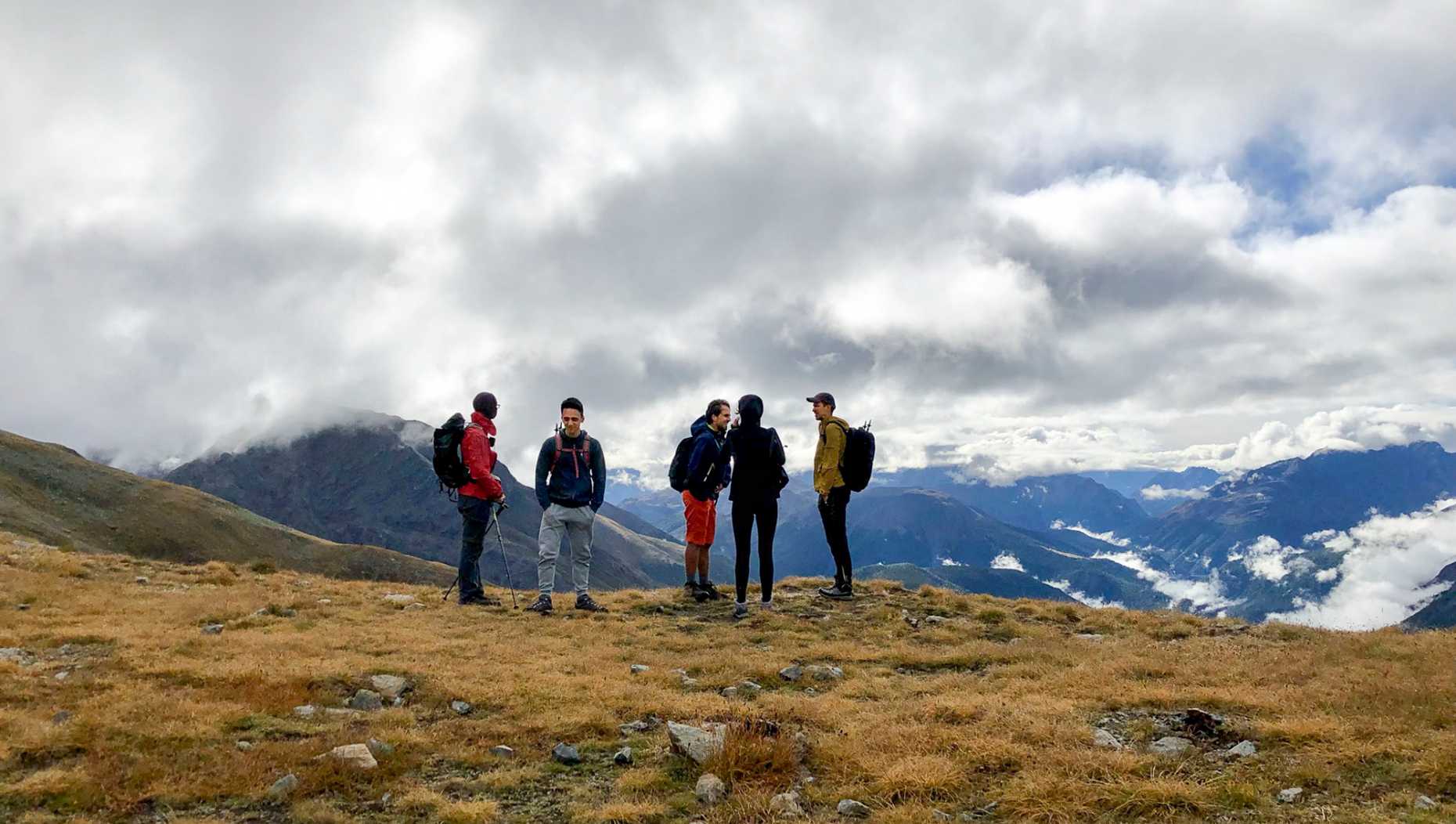
As our department celebrates its 40th anniversary, its success comes with its own set of challenges. The faculty’s growth, resulting in the department spreading out over multiple buildings, has made it more difficult to keep scientists connected beyond institutes. The coronavirus has not made this easier.
Celebrating its 20th anniversary this year, VMI, the association of scientific staff at D-INFK, has decided that office space limitations and pandemics should not keep us apart. At the VMI Summer Retreat, scientific staff can connect in a new way, fostering collaborations and interdisciplinary research within the department. "The retreat is our largest and most popular event, and a great place for both new and old staff to get together and make connections in a friendly atmosphere," says Matilda Backendal, currently vice-president of VMI and co-organiser of the retreat. The aim of the retreat is aligned with that of VMI as a whole: to make the department an exceptionally attractive place to research and teach.
In response to increased demand, this iteration of the summer retreat doubled in size, allowing two groups of 35 scientific staff of D-INFK to meet up for four days of scientific exchange and activities to increase the bonds across the department.
Each retreat started with a round of team-building activities, allowing participants to meet many other department members. A highlight of the welcome programme was “scientific speed-dating”, where each person gave a ten-minute summary of their research to a few others, without using any visual aids. Through this, participants were not only able to practise explaining technical topics in an accessible way, but they also got a flavour of the fascinating research areas at the department and ideas for new collaborations.
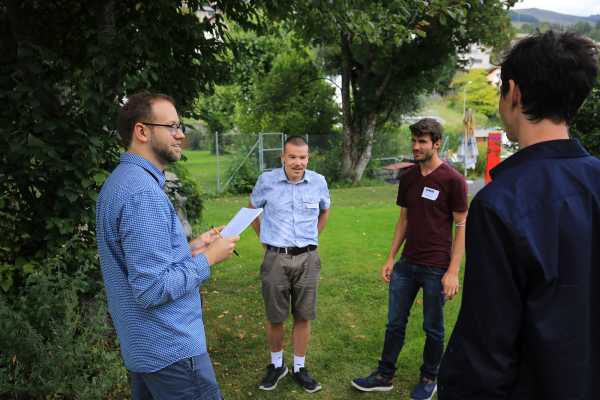
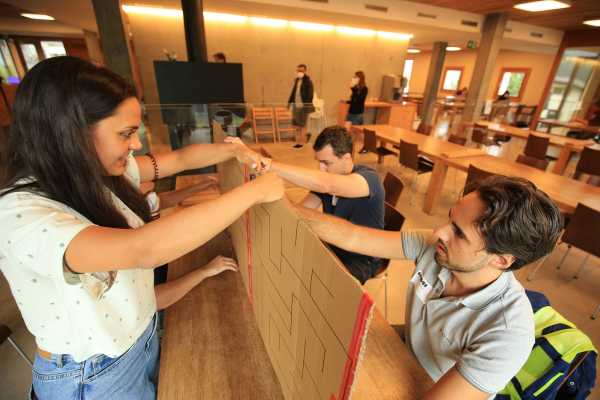
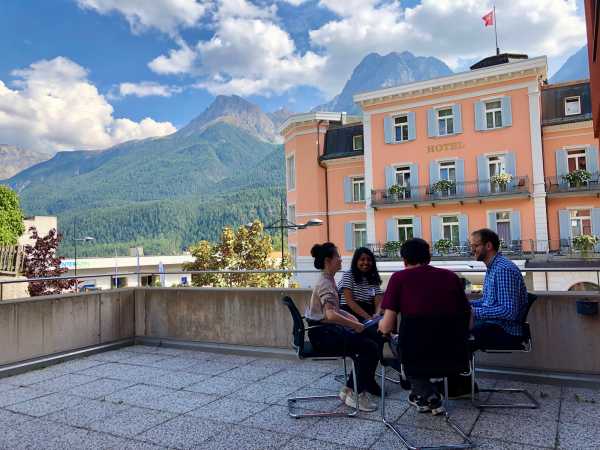
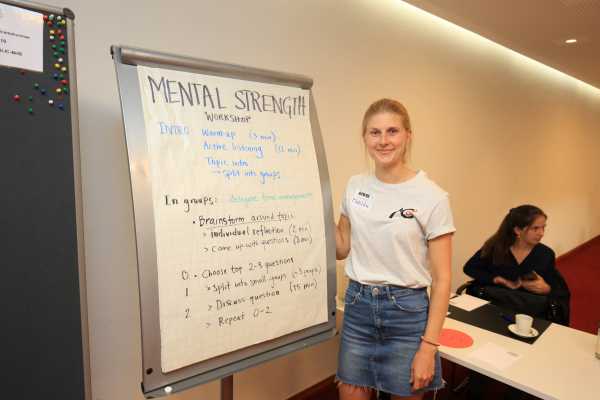
The third day of each retreat was entirely dedicated to the scientific programme, featuring a set of outstanding presentations and workshops given by the participants. From technical talks such as “AI for social good”, “narrative structure and NLP”, and “security of randomised data structures”, to discussions on language diversity and ethics in computer science, and a workshop on “how to build your own academic web page”, the programme included something for everyone. As part of VMI’s Scientific Excellence and Well-Being initiative, participants additionally had small group discussions on topics like work-life balance, imposter syndrome, time management, teaching and student supervision, among many others.
To recharge between the scientific activities, the programme also included leisure activities, where participants split up into groups to go hiking, e-mountain biking, or exploring the beautiful Lower Engadine villages and the hilltop Tarasp Castle. Much appreciated was the visit to the famous mineral baths of the Bogn Engiadina – a great way to network in a different environment and share impressions after a day of adventuring.
"The retreat is a great place for both new and old staff to make connections in a friendly atmosphere."Matilda Backendal, VMI vice-president
For participants, the retreat is the perfect way to meet other researchers in the department, particularly after the isolation of the past two years. “I believe it’s important to discuss among different groups what we are doing, because we can benefit from other perspectives and help each other,” said Karel Kubicek (InfSec group), who also noted the benefits of realising that people across different research areas struggle with similar problems, such as imposter syndrome.
The mixture of scientific and leisure activities is also appreciated. When asked what he liked most about the retreat, Dominik Winterer (AST lab) answered, “I enjoyed the full-day hike most. When you start hiking, the superficial layer of conversation goes away, because people cannot spend energy on that while making their way up a hill and stumbling over rocks. They need to focus on the essentials. This way the conversations deepen much faster than they otherwise would.”
Overall, the feedback from the participants was overwhelmingly positive – and many wished for a winter retreat as well. For those who are already looking forward to next year’s summer retreat, it can be good to know that it usually takes place in September, with registration typically opening in spring and announced on VMI’s website. The website is also a good place to stay up to date with other VMI events and initiatives such as career panels, teaching workshops and board game nights.
Last but not least, a big thank you to everyone who made the retreat possible! We thank the department for sponsoring the retreat, the VMI board for organizing it and the participants for making it such a success.
